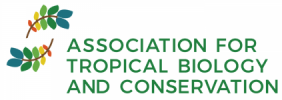Australia’s Great Barrier Reef (GBR) is a globally recognized biological treasure. Inscribed on the UNESCO World Heritage List in 1981 based on all four natural criteria, it supports over 1,500 species of fish, 4,000 species of molluscs, and the world’s largest collection of coral reefs.
The GBR also contributes more than $5 billion to the Australian economy each year, and sustains nearly 70,000 jobs.
Australia’s achievements in protecting the GBR and its biota are applauded. The GBR is protected by two complementary pieces of federal legislation: the Great Barrier Reef Marine Park Act 1975 and the Environment Protection and Biodiversity Conservation Act 1999. Under the former Act, multiple use is allowed only to the extent that it is consistent with the main objective of long-term protection and conservation.
Continued government leadership is needed to secure Australia’s GBR for its future citizens and the global community. This leadership should empower government agencies, communities and local environmental organizations to prevent development that conflicts with existing environmental protection for the reef.
The Association for Tropical Biology and Conservation (ATBC), the world’s largest organization dedicated to the study and conservation of tropical ecosystems, is concerned about plans for port development and associated dredging in the Abbott Point area. In particular, we are concerned about the feasibility of the offset requirement for reducing net sediment input into the GBR Marine Park.
At this 2014 annual meeting of the ATBC, in Cairns, Australia, the largest meeting of tropical biologists ever in Australia, we, the association representing 589 scientists and conservationists from 55 nations including Australia, DECLARE:
Therefore, be it resolved that the ATBC urges the Australian Government to:
- Seriously consider the cumulative impacts of port development within the GBR Lagoon.
- Reconsider the need for extended port development in the Abbott Point area in recognition of the substantial environmental cost;
- In the event of extended port development, avoid all dumping of dredge spoil into the marine environment. Placing the dredge in contained terrestrial sites far from major courses should be explored as an alternative;
- In the event that the Abbott Point port extension should go ahead, we ask the Australian Government to:
- Provide costed details on options for achieving the offset requirement;
- Provide confirmation that the proponents are willing to meet these costs;
- Provide a process to ensure that the offset requirement is being met and is effective as a mitigation effort;
- Maintain a scientifically robust program for monitoring water quality in catchment rivers and the inshore GBR regions to track progress towards the recovery and protection of a healthy GBR.
24 July 2014, Cairns, Australia



